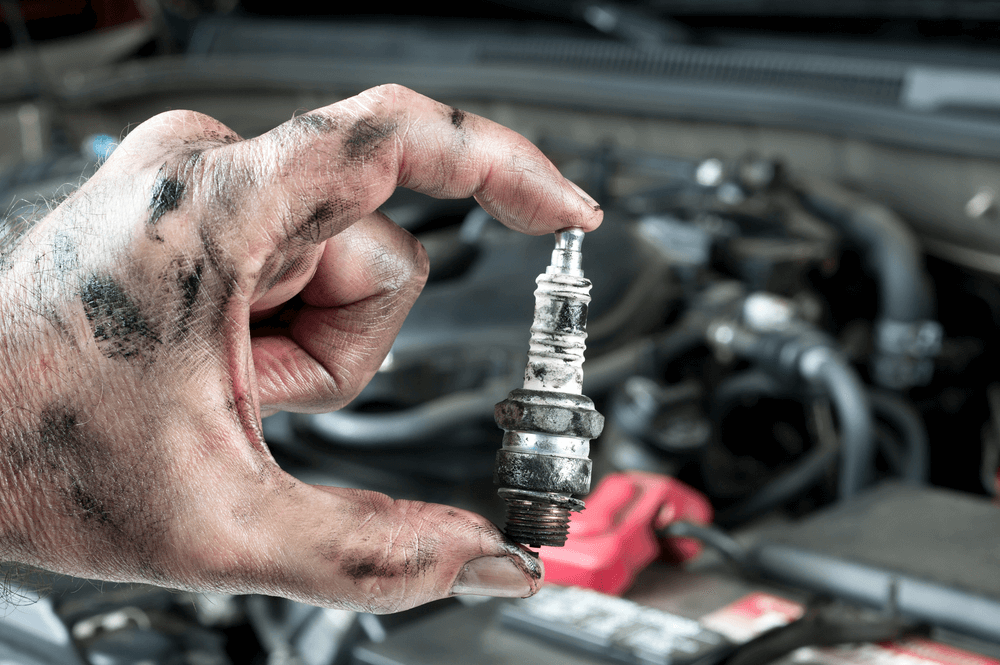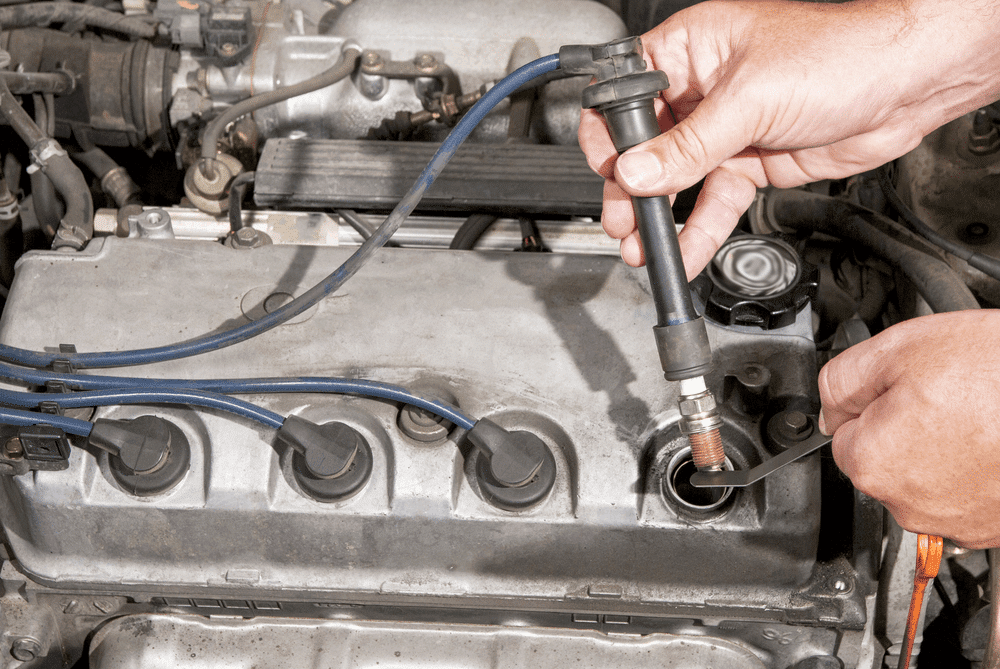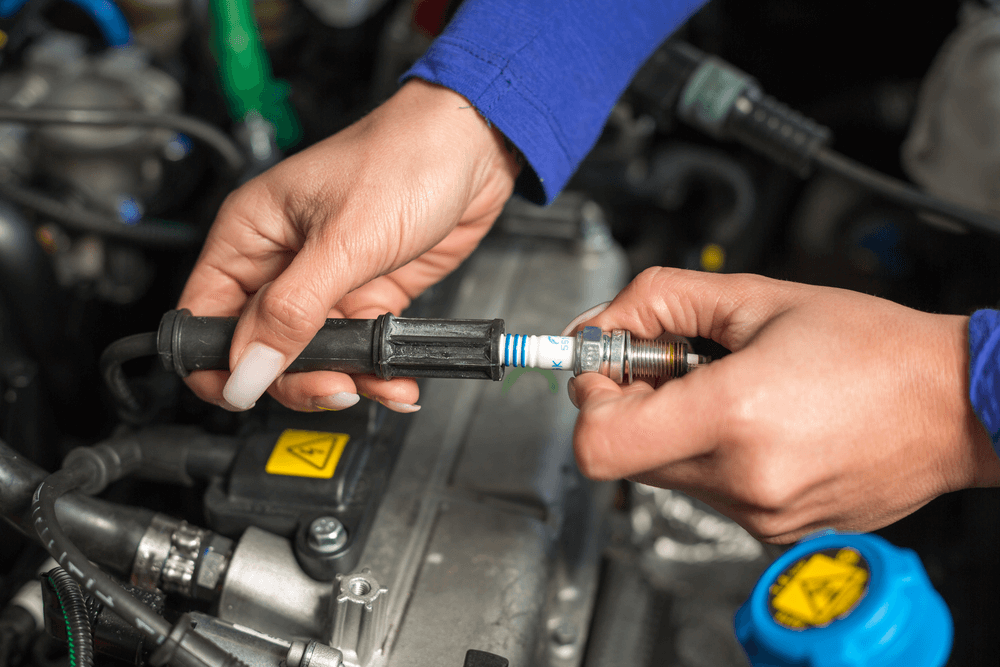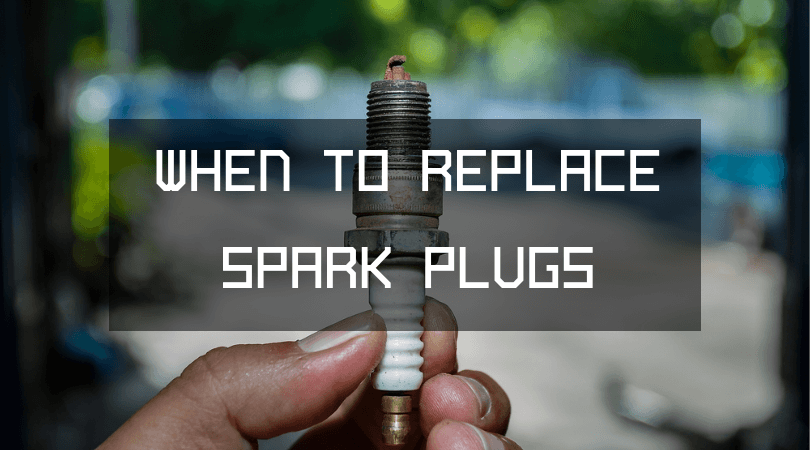The engine in your vehicle is like an orchestra. Every player should be in the right tune to produce good music. You can think of the spark plugs as an integral part of the motor. Spark plugs create miniature lightning strikes inside the combustion chamber to ignite the air and fuel mixture.
And if you know anything about cars, igniting the air/fuel mixture is a good thing. But what happens when the spark plugs are worn out? When is the right time to replace the spark plugs? Can you do it yourself, or should you consult a professional? All the answers are right here.
But first, here’s the answer to the most glaring question of all.
Contents
When Should I Replace The Spark Plugs?
In some modern vehicles, the check engine light or the service light will illuminate when the spark plugs need replacement. But in the absence of such features, how will the average Joe determine the right time to replace the spark plugs?
If you recently bought a used car, you are better off replacing the spark plugs altogether, even though the previous owner swore upon his life that the spark plugs are new. You should also change the oil and oil filter while you’re at it. Buying a new set of plugs is cheap insurance against breakdowns and engine damage.
But if you have a new car, the best way to determine if the spark plugs need to be changed is to consult the owner’s manual. Depending on the type of vehicle, the manufacturer recommends replacing the spark plugs every 30,000 to 80,000 miles. In some cases, a vehicle can go for as long as 100,000-miles before needing a new set of plugs. More reading on best spark plugs here.
What Are The Symptoms Of Bad Spark Plugs?

However, there are times the spark plugs will age or wear prematurely. Here are some of the most glaring symptoms to watch out for. If you notice any or all of the symptoms, it may be time to replace the spark plugs.
1. Pinging, Knocking, or Rattling Sound in the Engine
Do you hear rattling or pinging noises when you accelerate the vehicle or when driving on a steep incline? This probably means the engine is misfiring. You will also hear knocking or pinging noises if the wrong type of spark plugs are installed. Whatever the case may be, knocking or rattling sounds while the engine is running is not a healthy sign. Prolonged operation in this condition might lead to serious engine damage.
2. Hard Starting
Does it take two or three cranks before the engine starts in the morning? If the motor sounds like it’s having a hard time waking up from a deep slumber, the first thing to check is the spark plugs. Like I previously stated, the spark plugs produce the needed spark to burn the air and fuel mixture. If the spark is weak, the engine may refuse to start at all.
3. Sluggish Performance
Weak or delayed sparks will seriously affect the engine performance. If the vehicle feels sluggish, heavy, or basically out of tune, check the spark plugs. The problem will most likely go away if the spark plugs are replaced.
4. Problematic Idling
Your vehicle should idle smoothly and steadily. If the motor coughs, hesitates, or skips a beat during idling, worn out or failing spark plugs are probably the culprit. Take note that poor or irregular idling can be caused by many factors like a clogged air filter, dirty fuel filter, worn injectors, or even a vacuum leak.
5. Excessive Fuel Consumption
Weak spark plugs will make your vehicle burn more fuel. If you notice the vehicle is consuming more fuel than usual, the first thing to do is to check the condition of the spark plugs. You can either clean the plugs or replace them altogether.
Why Do Spark Plugs Fail Or Wear Out?

Spark plugs burn fuel and air. They do it repeatedly and constantly at varying engine speeds while exposed to tremendous heat and pressure. And as the spark plug ages, the gap between the ground and center electrode will ‘burn off’ or widen, leading to inefficient or incomplete combustion.
And since burning fuel and air is a dirty business, the spark plugs will also have tons of deposit buildup after thousands of miles. Those deposits will interact with fresh fuel and air, which ultimately leads to pre-ignition along with the aforementioned knocking and pinging noises in the motor.
How Do I Change The Spark Plugs?

The level of difficulty will depend on the type of vehicle. Naturally, vehicles equipped with smaller three or four-cylinder motors will be easier and faster to work on. But if you have a V6, V8, or larger motor, you may need to remove certain engine components to gain access to all the spark plugs in the motor.
However, changing the spark plugs is a basic task that every car owner should know. It’s not that difficult once you get the hang of it.
Step 1: Always work with a cool motor. If the engine is hot, allow it to cool for at least an hour.
Step 2: Open the hood and remove the spark plug wires on top of the motor. Depending on the type of vehicle, the spark plug wires (or ignition coils) can be removed with a slight pull or by removing a couple of bolts.
Step 3: Grab a spark plug socket and a ratchet. Remove the spark plugs one at a time. Turn the ratchet in a counterclockwise direction to loosen and remove each plug.
Step 4: Check the gap of each new spark plug using a gap gauge. Check the owner’s manual to make sure the gaps are within the specified range. Insert a new spark plug in each hole and tighten accordingly. Do not overtighten!
Step 5: Put back the spark plug wires and/or ignition coils and you’re done! Start the motor and check for proper operation.
More reading on testing your distributor.

